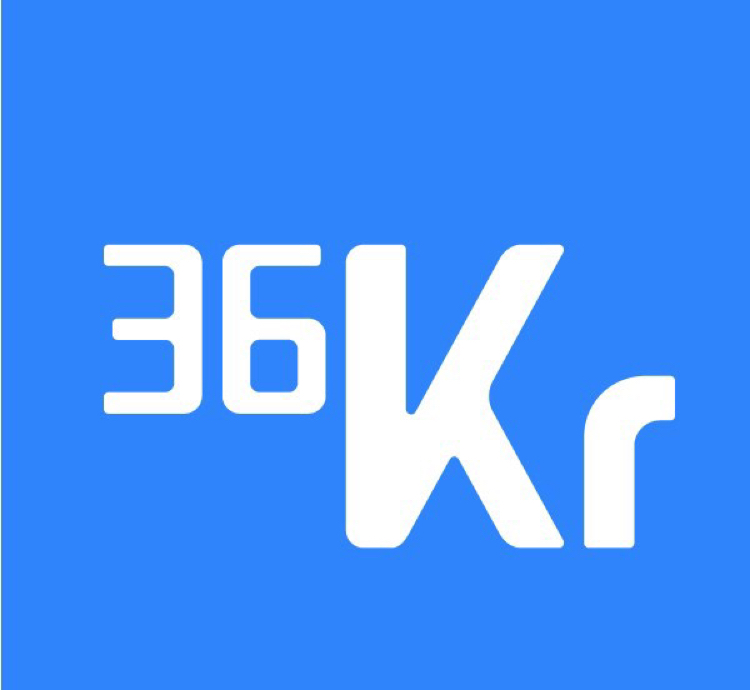
first level title
01. The mysterious Xiongan blockchain
A year ago, three little-known small counties in Hebei Province were transformed into Xiongan New Area, which represents the future of China, under the order of the central government.
"Millennium plan" and "national event", the central government's praise for it is rare.
In November last year, technology companies led by BAT went to this city of the future to set up a layout. It claims to build a "smart city" with blockchain, cloud computing, artificial intelligence and other high technologies.
In January this year, the first blockchain leasing platform was launched in Xiongan.

All kinds of messages seem to be conveying that this new city under the protection of the central government is the future of China.
The eight-character title "Xiongan today, China tomorrow" dominated the headlines of various news media on April 1, 2018, the first anniversary of the founding of Xiongan.
With strong curiosity, "31 degrees north latitude" drove to visit this future city and the first blockchain leasing platform.

We first found out where Alibaba is stationed in Xiongan.
Going west from the office of the New District Management Committee, there is an unremarkable hotel. On the second floor on the side of the hotel, there is a signboard of "Alibaba Group". There is only one real estate guy inside.

"There is no one here, they (Alibaba team) come here occasionally. If you want to interview, you have to apply at the Beijing headquarters first." This is the answer we got.
Under his guidance, we went to the "New Citizen Service Center", the temporary office of Alibaba.
Dusty roads, messy and barren land to be reclaimed, and construction sites with roaring machines have nothing to do with high-level vocabulary such as millennium plans, blockchain, and cloud computing.
That's what we see.
This is a citizen service center based on mobile phone positioning, or a barren cemetery.

Construction is going on around:
 (Construction Site)
(Construction Site)
 (The migrant workers were eating, and we bought a basket of buns here.)
(The migrant workers were eating, and we bought a basket of buns here.)

(It seems to be stuffed with leeks, 6 yuan a cage)
Not far away is a temporary office, where the Alibaba team works.
"They (Ali) have been here for several months. There are 7 or 8 people in total. They will move in there after April 20." A security guard pointed to the unfinished building behind him and said.
This is one of the few pieces of information we have on the Alibaba team.
"You are not allowed to enter here", this is the most heard sentence that day.
Whether it is a construction site, an office building where the management committee is stationed, or a temporary office of an enterprise, there will always be a person who will stand in front of him and ask, "Who are you, who are you looking for, and you are not allowed to enter here." This added some troubles to our visit. , but makes this place even more mysterious.
These ubiquitous security guards didn't know who the construction building behind them was built for and what was going on in those temporary offices.
The Ali team and the blockchain leasing platform that have been looking for for a long time are always like a shadow, unable to see the real face. People can't help but wonder whether the so-called first blockchain leasing platform has been launched just a gimmick?
first level title
02. Blockchain + leasing
In fact, there are already international precedents for blockchain + leasing projects.
Rentberry, an American company established in 2015, is the first company in the world to apply blockchain technology to the leasing industry.
It mainly establishes smart contracts between tenants and landlords through blockchain technology to ensure the authenticity of information and eliminate the existence of intermediate brokers.
All fees are paid in tokens and all transactions are recorded on the blockchain ledger, so there is less risk of fraud.
"You can check the landlord's personal credit, previous rental records, tenant reviews, etc. If you are sharing a house, you can also check some information about your 'future roommate' in advance," said a netizen.
Another innovation is that tenants can get their deposit through crowdfunding.
If community members provide some rent for a crowdfunder, they will be rewarded with corresponding tokens.
This is essentially a decentralized micro-loan system in which every participant can make a profit.
At the same time, through the way of token incentives, community autonomous operations such as showing houses and taking pictures can also be realized.
According to Lubinsky, the founder of the project, they helped tenants save 5.1% of rent. It is reported that it has been launched in 5,000 cities. More recently, it has raised more than $25 million in just one month.
In contrast, the Xiongan blockchain leasing platform can also guarantee the authenticity of information such as real houses, real people, and real residences.
But because it is not a public platform that everyone can log in to, it is a platform created by the government to establish a housing rental point system, and it is an internal management tool.Therefore, it is not a market-oriented project.

But we can still focus on the blockchain + rental market.
From the perspective of rental demand, the high housing prices in first- and second-tier cities have continued to increase the demand for rental housing.
Many people who cannot afford a house have to rent a house to live in. Moreover, housing prices in first- and second-tier cities are unlikely to fall, so for those who cannot afford to buy a house in the short term, the time to switch from renting to buying a house will also be delayed. The longer the rental time, the more rental demand.
However, compared with the 50% rental rate in core cities in the United States and Japan, only about 30% in core cities in China (Lianjia Research Institute), there is huge room for growth in rental demand.
According to statistical analysis by HomeInsight, an American housing rental website, the average person will move 11.7 times in their lifetime.
However, as long as it is related to the house, many procedures will be complicated.
For example, before you change your house, you have to plan to find a house half a month in advance. Which platform has more real and reliable houses? Which house deposits are paid monthly? Is this landlord a good person? Is the contract signed with him valid?
It is reported that many tenants have encountered things that the deposit has not been refunded. Some were even defrauded by landlords and had to be resolved through judicial means.
Blockchain technology can perfectly solve the problems faced by this huge market. It is reported that many real estate companies with leasing business have already deployed blockchain projects.
In the end, who will share the big cake, in addition to seizing the opportunity, the actual landing problem is a difficulty that has to be overcome.
In addition to Rentberry, a relatively well-known international project, Stayawhile, a blockchain leasing platform for mid-term tenants, has also emerged, providing users with fully furnished and luxurious apartments.
The platform also uses its own token, but its main focus is on markets like New York, which are not international.
There is also the Slock.it platform, which is not limited to renting apartments.
The company uses a"ethereum computer"An open source project that helps individuals and companies connect IoT devices to the platform. In a shared environment, users can rent smart locks, devices, rooms or other things on the platform.
If an asset is not 100% used, the owner can also share it to obtain a certain income. This is actually a rental + sharing model.
If the essence of the sharing economy is the separation of asset ownership and use rights, then the peer-to-peer transactions provided by blockchain technology and the currency burning mechanism of cryptocurrencies will be a more thorough sharing economy. And leasing is essentially a kind of sharing economy.
"You can rent a lawn mower in Melbourne or a bicycle in Beijing on our platform without any foreign exchange fees, and the supplier will be certified immediately.
first level title
03. Where is the intermediary road?
Returning to the perspective of Xiong'an again, we found an interesting phenomenon.
Lianjia, a growing real estate agency that relies on information asymmetry, is also one of the participants in the Xiongan blockchain leasing platform, where it plays the role of providing housing leasing information services.
It stands to reason that the application of blockchain technology first eliminates intermediaries, but with the active participation of Lianjia, we seem to see another possibility of intermediaries in the process of disintermediation, that is, "from an intermediary to an information service provider".
This view is not groundless.
Compared with the Internet era, Taobao directly connects merchants and consumers, eliminates multi-layer intermediate underwriting links, and transforms itself into the largest and only intermediary.
In this process, Taobao’s core competitiveness lies in the fact that it provides merchants with a large number of users and various services such as marketing plans and marketing systems, and also provides consumers with services such as classification, comparison, and return. Now who dares to say Taobao is just an intermediary rather than a service provider?
Similarly, Lianjia, which has been operating for several years, has accumulated a large amount of housing and tenant information.
For the blockchain leasing platform that has just been born, assuming that it has broken through the technical difficulties and applied it, how to obtain a large number of users is also a process that requires long-term operation.
In this process, an intermediary with data and years of service experience can provide services or solutions to both parties.
So can it also be said that in addition to real estate intermediaries, banking and financial intermediaries can also gain a place in the blockchain world by virtue of their service provider positioning. For example, we also saw the shadow of CCB in the Xiongan blockchain leasing platform project.
Therefore, although the Xiongan blockchain leasing platform is not a market-oriented application, it is obviously a "test field" that cannot be underestimated because many forces are trying to make new attempts in it.
Of course, the market-oriented "experimental field" is gearing up and ready to try.
For example, Baidu Finance has jointly issued blockchain projects with Baiqian Leasing and other parties last year, focusing on the field of car rental. The rental platform "Yingjia Life" also started to build a housing rental system based on blockchain technology last year.
But if we want to get fruit in this experiment, just like what we saw in Xiongan, there is still a long way to go.



